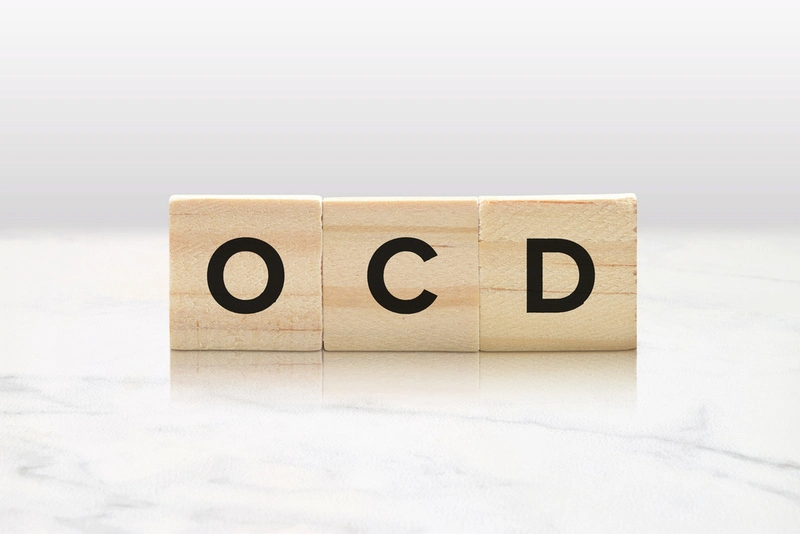Obsessive-compulsive disorder (OCD) is a mental health condition that affects millions of people worldwide. It is characterized by intrusive thoughts and repetitive behaviors that can interfere with daily life and cause immense suffering.
Researchers have been exploring the possible causes of OCD for decades, and one area of focus has been trauma. To fully explore the connection between OCD and trauma, keep on reading.
What is trauma and what are its types?
Trauma refers to a psychological and emotional response to an overwhelmingly distressing or disturbing event or series of events that exceeds an individual’s ability to cope. It can lead to a significant and long-lasting impact on a person’s mental, emotional, and physical well-being. Traumatic experiences can be mental, emotional, physical, or sexual, varying in nature and intensity, thus giving rise to different types of trauma.
Acute trauma is typically a single event, such as an accident or assault, while chronic trauma involves prolonged exposure to distressing situations, such as ongoing abuse or combat. Complex trauma refers to multiple, prolonged, and often interpersonal traumas, often experienced during childhood, which can profoundly affect one’s sense of self and relationships.
Secondary trauma occurs when individuals are indirectly exposed to others’ traumatic experiences, commonly experienced by healthcare professionals or first responders.

What are the effects of trauma on mental health?
Trauma can have adverse effects on physical health, including increased risk of chronic pain, cardiovascular disease, immune system dysregulation, and other stress-related ailments. It can also contribute to sleep disturbances, fatigue, and heightened physiological arousal.
Trauma can also have profound effects on an individual’s mental health. Through neurobiological, social, and environmental factors, it often leads to the development of mental health disorders, such as post-traumatic stress disorder (PTSD), mood, anxiety, and dissociative disorders, as well as psychosis and OCD.
People who have experienced trauma may frequently relive the traumatic event through distressing memories, nightmares, or flashbacks, which can create feelings of intense fear, helplessness, or horror. On a neurobiological scale, these negative feelings can trigger the release of stress-related hormones and disrupt the balance of neurotransmitters as well as natural connections between networks in the brain.
Trauma can also disrupt cognitive processes, resulting in difficulties with concentration, memory, and decision-making. All of these factors serve as a neurobiological framework for understanding how trauma can cause mental health issues.
Traumatized individuals may also experience a persistent sense of emotional numbness, detachment from others, or difficulty experiencing positive emotions. Trauma can impair one’s ability to trust others and themselves, leading to difficulties in forming and maintaining relationships.
All of these elements can cause social isolation, impaired emotional well-being, cognitive decline and increase the risk of substance abuse. These factors serve as a socio-environmental framework for understanding how trauma can cause mental health issues.
Exploring the connection between OCD and trauma:
The relationship between OCD and trauma is complex. While not all individuals with OCD have a history of trauma, research suggests that trauma can be a contributing factor in the development or exacerbation of OCD symptoms in some cases.
Traumatic experiences may trigger or worsen obsessive thoughts and compulsive behaviors as individuals attempt to cope with or control distressing or intrusive thoughts related to the trauma. Additionally, trauma-related OCD may involve specific themes or content related to the traumatic event.
Research and studies on the relationship between OCD and trauma:
Some studies suggest a potential association between adverse childhood experiences (ACEs) and the development or exacerbation of OCD symptoms (Felitti & al. 1998). Traumatic experiences during childhood may contribute to heightened anxiety, intrusive thoughts, and difficulties with emotional regulation, which could potentially increase the risk of developing OCD.
In a study published in the Journal of Anxiety Disorders (2010), researchers investigated the impact of childhood trauma on OCD symptom severity in individuals with OCD. The study found that individuals with a history of childhood trauma had higher levels of OCD symptom severity compared to those without trauma. Additionally, specific types of childhood trauma, such as physical or sexual abuse, were associated with increased OCD symptom severity.
Another study published in the Journal of Obsessive-Compulsive and Related Disorders (2013) explored the relationship between childhood trauma and specific OCD symptom dimensions. The findings indicated that individuals who reported a history of childhood trauma had higher scores on the symmetry and hoarding symptom dimensions of OCD compared to those without trauma.

How does trauma cause OCD?
To better understand ocd related to trauma, we can look at the following potential mechanisms of action:
- Heightened Anxiety and Sensitization: Traumatic experiences can lead to increased anxiety and hyperarousal. This heightened state of arousal may sensitize individuals to stressors and make them more vulnerable to developing obsessive thoughts and compulsive behaviors.
- Maladaptive Coping: Trauma can disrupt normal coping mechanisms, leading individuals to adopt maladaptive strategies to manage distress. OCD symptoms, such as compulsions and rituals, may serve as coping mechanisms to temporarily alleviate anxiety or prevent perceived harm associated with the traumatic event.
- Cognitive Processes and Interpretation: Trauma can shape cognitive processes and influence how individuals interpret their experiences. Negative beliefs about oneself, the world, or others may be reinforced by the trauma, leading to distorted thinking patterns that align with OCD symptoms. This can involve exaggerated beliefs about personal responsibility, the need for certainty, or the significance of thoughts, contributing to the development or maintenance of OCD.
- Overlapping Neurobiological Factors: There may be shared neurobiological factors between trauma and OCD. Both conditions have been associated with alterations in brain regions involved in threat detection, fear processing, and emotion regulation. Trauma-related alterations in these brain regions could potentially increase vulnerability to OCD symptoms.
Trauma-related OCD treatment:
Ocd from trauma can be a difficult condition, but thankfully there are many treatment options available to manage it:
Medication
Drugs, such as Selective Serotonin Reuptake Inhibitors (SSRIs) are commonly prescribed medications for OCD. They can help alleviate symptoms of OCD, as well as some symptoms of trauma response.
Cognitive-Behavioral Therapy (CBT)
CBT is an evidence-based treatment for OCD that focuses on identifying and challenging maladaptive thoughts and behaviors. In the case of trauma-induced OCD, CBT may also incorporate trauma-focused techniques, such as trauma processing or narrative exposure, to address the underlying traumatic experiences.
Brain Stimulation Therapies
Brain stimulation therapies such as Transcranial Magnetic Stimulation (TMS), accelerated TMS, or even deep brain stimulation for the most severe cases, can help treat OCD. Another benefit of TMS therapy is that it is also efficient in alleviating symptoms of PTSD and anxiety.
Eye Movement Desensitization and Reprocessing (EMDR)
EMDR is a specialized therapy commonly used for trauma-related disorders. It involves guided eye movements or other forms of bilateral stimulation while the individual recalls the traumatic event. EMDR aims to facilitate the processing and reintegration of traumatic memories, reducing distress and associated symptoms.
Mindfulness-Based Interventions
Mindfulness techniques, such as mindfulness meditation or mindfulness-based stress reduction, can help individuals develop awareness and acceptance of their thoughts and emotions.
Supportive Therapy and lifestyle interventions
Engaging in supportive therapy, such as individual or group counseling, can provide a safe space to process emotions and experiences related to trauma and OCD. Additionally, self-care practices like exercise, adequate sleep, a healthy diet, and somatic stress reduction techniques such as Yoga can support overall well-being and recovery.

Summary of key points
Trauma refers to a distressing event that exceeds an individual’s coping abilities, leading to significant impacts on mental, emotional, and physical well-being. Trauma can cause mental health disorders such as PTSD, depression, anxiety, and OCD.
Traumatic experiences may trigger intrusive thoughts, disrupt brain functioning, and impair cognitive processes. Trauma can also result in emotional numbness, detachment, difficulties in forming relationships, social isolation, cognitive decline, and increased risk of substance abuse.
Potential mechanisms connecting trauma and OCD include heightened anxiety, maladaptive coping strategies, distorted thinking patterns, and overlapping neurobiological factors.
Treatment options for trauma-induced OCD include medication, cognitive-behavioral therapy (CBT) with trauma-focused techniques, brain stimulation therapies, EMDR, mindfulness-based interventions, and supportive therapy as well as lifestyle interventions.
Final thoughts on OCD and trauma:
The relationship between trauma and OCD is complex and multifaceted. While not all individuals with OCD have experienced trauma, research suggests that trauma can contribute to the development or worsening of OCD symptoms.
Traumatic experiences may trigger or amplify obsessive thoughts and compulsive behaviors as individuals attempt to cope with distressing or intrusive thoughts related to the trauma.
Further research is needed to fully understand the connection between trauma and OCD. OCD can sometimes be a debilitating condition and trauma as far as we know can be preventable. Perhaps paying more attention to the prevention of and the recovery from trauma can help prevent the development of trauma-related ocd, or at least reduce the severity of its symptoms.
